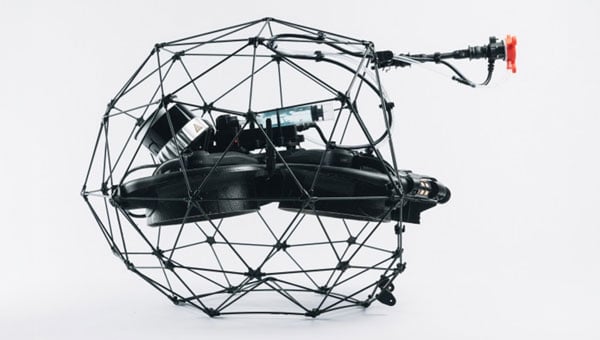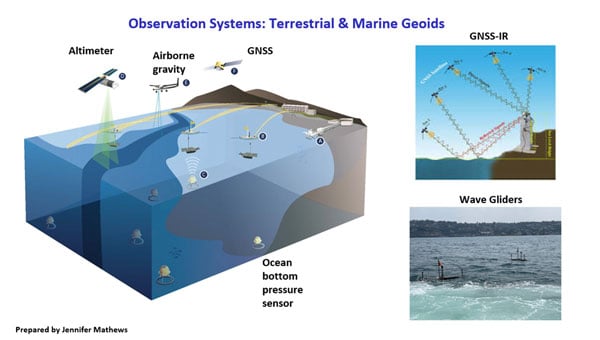IFEN’s Growing GNSS Portfolio
When I first heard of IFEN, it was a competitor on the EGNOS and Galileo programs that NovAtel was trying to get into. Each ITT (Intention To Tender) that our team in Calgary bid on, we were to be weighed against what IFEN or Septentrio had proposed.
NovAtel did eventually capture its first study contract, and has now gone on to play a significant role on both programs, while a number of European GNSS start-ups have gone on to become contenders on the worldwide GNSS market.
This article focuses on IFEN — a company that may be not well known in North America. Sure, its representatives show up at ION and the company usually has one of those very large booths, which is sometimes shared by German provincial sponsors. But who are these guys and where did they come from? Well, its obvious that they come from Germany, in Bavaria, somewhere near Munich, but how come they have such a GNSS presence and where does all that technology come from?
IFEN in my mind was always associated in the past with Günter Hein and the University of Munich — its academic association was actually with the Institute of Geodesy and Navigation University FAF (Federal Armed Forces) Munich, and Günter was indeed one of the founding members of the company. Now time has moved on, and Günter has left for European Space Agency (ESA), EGNOS, and other things, but IFEN still flourishes with a team of around 40 people, 90 percent of whom are scientist/engineer types — the company has added around 30 people over the last eight years.
IFEN’s business model is based on continuing participation in ESA/European Community (EC) projects, with commercial products currently contributing only around 20 percent of its revenues. As any company working to make a living in the GNSS industry can attest, it takes a huge amount of effort to get products to market, and what seems like as much effort to ensure successful sales and continuing customer support. On the world stage it takes a lot to be a successful GNSS product supplier, and IFEN appears to have broken through into the commercial GNSS world market.
IFEN GPS/Galileo/GLONASS simulators have been successfully fielded around the world by some very substantial organizations, including the recent purchase by Space Applications Centre (SAC) of India, who will use IFEN’s multi-constellation, multi-frequency RF navigation constellation simulator for development and testing of the Indian Regional Navigation Satellite System (IRNSS). IRNSS is being developed as an L5/S-band constellation, so IFEN’s simulator will provide initial L5 capability, with a later option to add S-band. It’s expected that the SAC engineering group will likely use the simulator in connection with IRNSS satellite payload development.
So what makes up the majority of IFEN’s business? Since 1999 IFEN has played a growing role in the study, development, fielding, and testing of EGNOS, followed closely by its involvement in Galileo in 2000.
A large number of projects have been undertaken, ranging from pure research on algorithms and receivers, through to system and receiver prototyping and fielding of operational system elements. A cornerstone at IFEN was the invention of “memory codes” for Galileo, which are now part of the Galileo E1 and E6 signals.
We’re all basically familiar with the large GATE outdoor signal test range near Sultzberg, right? But it’s probably not well known that work has been underway since 2002, and significant system proving has now culminated in the formal, third-party certification of GATE for use as a Galileo open-air test laboratory — GATE can also perform receiver integrity testing (RAIM) for safety of life (SOL) applications. This means that any receiver manufacturer can now benefit from access to realistic Galileo Signal-in Space transmissions in an actual representative outdoor setting. After simulation testing in the lab, this IFEN-managed facility can provide manufacturers with a real stress-test for Galileo receivers.
A little imagination may be required for ionospheric effects modeling, but this is now a qualified facility with all the anticipated Galileo services (OS, SOL, CS, and PRS) available even before we have improved IOV satellite coverage — the successful Soyuz launch of the first two IOV satellites from Kourou, French Guiana, has happened just as I write this story.
The roots of IFEN lie in the EGNOS “Independent Check-Set” algorithms and prototype development, starting with EGNOS Version 1 in 1998 through to the current operational Safety of Life certified EGNOS Version 2, and leading up to the next-generation EGNOS Version 3. IFEN was the very first company in Europe to have developed ground-based integrity monitoring algorithms and software prototypes. The Independent Check-Set is core software at the heart of EGNOS that monitors critical EGNOS system parameters and provides out-of-tolerance alarms if integrity should be compromised. Significant development, prototyping, and evolution of algorithms over many years have lead to incorporation in the certified, operational EGNOS Version 2 system. Significant work is still ongoing in defining and prototyping of the next-generation multi-constellation capable EGNOS Version 3 SBAS system.
In parallel with work on EGNOS, IFEN continues to work within four of the six Galileo IOV segments. IFEN has provided substantial contributions to:
- System Segment: related to integrity, SIS verification, and development of the Galileo UERE Monitoring Facility (UMF).
- Space Segment: providing test receivers for the Galileo IOV payload test system.
- Ground Mission Segment: providing algorithms and prototyping for Galileo integrity.
- Operations: providing the verification receiver for Galileo IOV “In-Orbit-Tests.”
These are projects in which IFEN worked with most of the Galileo prime contractors, under projects sponsored by those contractors, and also with the European Union, DLR (German Aerospace Center), ESA, and the EC.
So following the European model, a small German start-up was able to rub elbows with most of the major key players in Europe, and over time has been able to develop an arsenal of GNSS technology. Project management skills, leading technology, international marketing experience, and of course commercial products have all successfully emerged from this European incubation process.
When Europe did its homework before turning on the investment taps to fund EGNOS and Galileo, the strategy leading to a sovereign satellite navigation system not only involved ensuring that Galileo was independently controlled by Europe, but that a European GNSS industry would also develop and supply that system. And in the process a European GNSS industry would be developed which would compete on the global stage to share in the global revenues that companies in the GNSS industry has previously enjoyed outside Europe.
Sure, there have been many stumbles and delays, as Brussels tried initially to make this less costly and painful for its member states through a Public Private Partnership that didn’t work out — some people would even say that this money spent by the bureaucrats was totally wasted and could have gotten the system up and running almost a decade earlier. And revenues would have flowed back into European treasuries much sooner as products and services generated jobs and government taxes. But hey, we’re finally seeing that happen as companies like IFEN get some real traction in the global GNSS marketplace.
Tony Murfin
GNSS Aerospace

















Follow Us